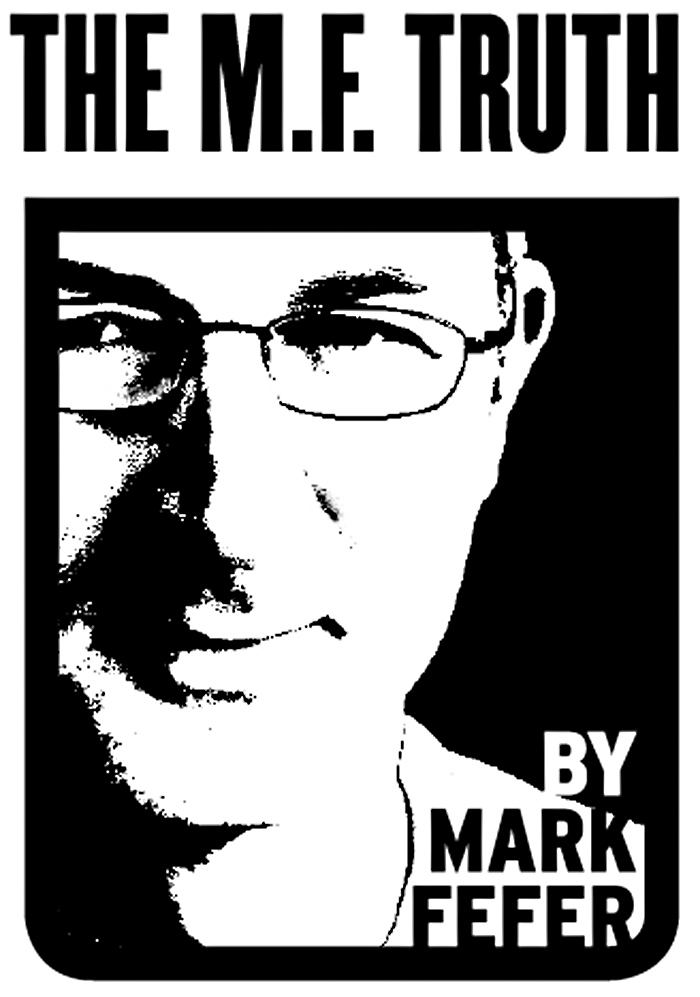Every city needs a Knute Berger. Most cities have a fake one—a gruff, curmudgeonly figure who purports to speak up for common sense against the fancy-pants types and their schemes. Your average newspaper columnist can show up in a new city and start playing that part within the hour. Much rarer, and more valuable, is what you get from Knute Berger.
His plainspoken prose serves a mind that’s anything but Average Joe. His confounding knowledge of local history, science, and pseudo-science allows him to make connections no one else would. And his eye for our city’s unique brand of self-deception is so acute, he’s less an embodiment of Seattle’s “soul” (as one jacket blurber calls him) than our tough-loving older brother. Sure, Jonathan Raban has carved out a nice part-time gig spinning Seattle tales for the out-of-town intelligentsia (who wouldn’t trust a mere local), but Berger is the native who calls out Seattle to Seattleites. Editors at The New Yorker wouldn’t understand.
Berger’s been writing opinion pieces in one form or another for at least 15 years, most of them pegged to current events. You’d be right to wonder how well they hold up today. Yet for his new book, Pugetopolis (Sasquatch Books, $18.95), he and Larry Cheek—a local architecture critic whom Berger credits with editing—have managed to collect dozens of pieces that still feel immediate and absorbing, and that reveal new facets of Berger’s talent even to readers like me who know him well.
I’ve been reading Berger for years, in part because for many of those years he was my boss. I started working for him at Eastsideweek in the mid-’90s, then spent several more years with him at Seattle Weekly, which is where the bulk of these essays were first published. He was, and still is, a friend. Yet I found much new to appreciate in the book, which also includes essays he’s done for his more recent outlets: KUOW, Seattle magazine, and Crosscut.com.
Berger is probably best known as a crusader against mindless growth. (Hence his nom de plume: Mossback.) He’s been an invaluable heretic in a city that’s gone to its knees for the religion of “density.” His railing against a formerly middle-class-friendly hometown being overrun by the forces of wealth and development may seem less resonant at this instant, as the local economy crumbles around us. But his overall picture of a city drunk on good fortune, and incapable of seeing the disconnect between its sanctimonious attitudes and its quick-money practices, remains as on-point as ever. A champion of preservation, Berger’s a general antagonist of orthodoxies of all kinds—be they from the left or right. All of which is on abundant display in Pugetopolis.
A 2002 piece from Washington Law & Politics provides a brilliant dissection of Seattle’s absolute non-problem with race. (“We see ourselves not so much as ‘white,’ as clear, transparent like air or glass.”) He bitterly skewers Boeing for crying “market forces” when it’s time to dump jobs—while happily lapping up as many favors from the public sector as it can get. (“This community couldn’t have kissed more Boeing ass if it had Mick Jagger’s lips.”) He’s a surprising defender of the much-maligned Seattle “process” (“We’ve thrived by giving no one too much power, by never ceding anything we can’t take back”), while fittingly contemptuous of a tepid urban culture that elevates people like Greg Nickels—”a man representative of the soft mediocrity that Seattle is always willing to settle for.”
Any writer will tell you that a strong ending can be the toughest challenge, but it rarely seems to have been one for Berger. His last lines are a flourish, a knife-twist, a coda that provides shape to everything else. A column about the Gates Foundation’s underwriting of the intelligent-design loonies at the Discovery Institute ends as follows:
“Gates is famous for announcing to Microsoft employees that one idea or the other they’ve offered is ‘the stupidest idea I’ve ever heard.’ Well, Bill, when it comes to funding Discovery, right back at you.”
If he weren’t so funny, Berger might come off as another asshole. But he avoids the self-promoting, self-righteous tirades that other columnists use to build their “brand.” He never makes himself the hero. Apart from an obsessive (and failed) campaign to save the Ballard Denny’s, he’s been mostly a self-deprecating observer. In one column poking fun at a local greenie forcing his family to live without a car, he notes: “Mossback is a total defender of parental crackpots. It builds character in kids—at least I sure as hell hope so.” In another column, he wrestles with his own ambivalence over cheap consumer goods and their social consequences: “Costco has the street appeal of legalized larceny: You feel like you’re in New York, buying stuff that fell off the truck at JFK. Who could resist?”
Berger doesn’t really pretend to offer a fully vetted ideology. He hates Seattle’s niggling “nanny state” efforts to regulate our personal habits for a supposedly larger social good, yet he is more than eager to see all manner of restrictions imposed on developers, newcomers, and other perceived enemies. His libertarianism seems highly selective. And despite all the ink he’s spilled on the subject of growth and preservation, I’ve yet to understand how exactly he thinks we should go about trying to accommodate the hundreds of thousands of people who continue to move here—besides just refusing them admittance.
But racking up rhetorical points is only one of the book’s aims. For me, the most surprising, and most memorable, pieces in Pugetopolis are the ones that capture a sense of wonder and pain, such as a beautiful essay about his family’s history on Shaw Island and a recollection of a Mount Rainier hike the week before 9/11. I’ve known Berger to laugh at the ludicrous “poetical” voice that readers of verse like to adopt. But crusty, crabby Mossback may just be a reluctant poet himself.








